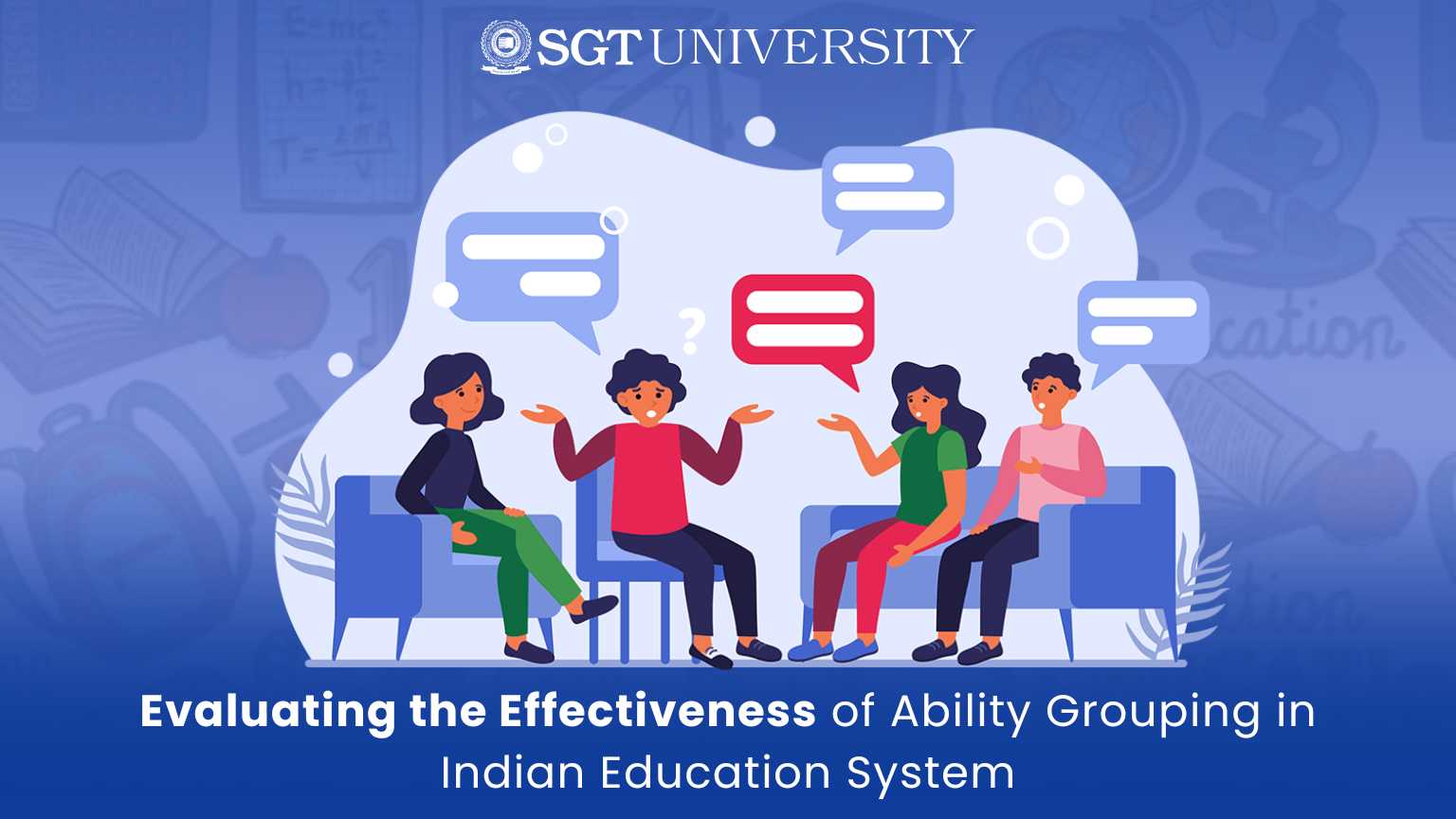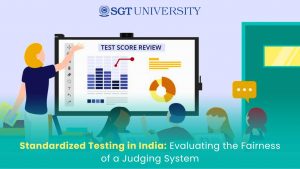“Difference is of the essence of humanity. Difference is an accident of birth and it should therefore never be the source of hatred or conflict. The answer to difference is to respect it. Therein lies a most fundamental principle of peace: respect for diversity.” – John Hume
The Indian education system is one of the largest and most diverse in the world, catering to the needs of millions of students across various socioeconomic backgrounds. Among the many strategies employed to address diverse learning needs, ability grouping is a controversial yet commonly used method.
Ability grouping involves dividing students into different classes or groups based on their academic performance or perceived ability levels. This article aims to evaluate the effectiveness of ability grouping in the Indian context, exploring both its potential benefits and drawbacks.
The Rationale Behind Ability Grouping
Imagine you are in a school where students are separated into different groups based on their abilities in a certain subject, like math. Some students are in the “Basic” group, some in the “Intermediate” group, and others in the “Advanced” group.
Proponents of ability grouping think this is a good idea because teachers can teach each group in a way that matches their specific needs. This can help students learn better because they are all at similar levels, and they get the right challenges to improve. It also helps in reducing misbehavior in class, encourages friendly competition, and makes students do better in their studies.
Those for this system say this system is good because it makes sure students don’t get overwhelmed with things they don’t understand yet. They can learn at their own pace and understand things deeply.
The Impact on Students with Diverse Learning Needs
Ability grouping can have differing effects on students with diverse learning needs, such as those with learning disabilities or those who are gifted.
In theory, grouping students based on their abilities can provide tailored support to struggling students and challenge gifted students appropriately.
In some Indian schools, students with learning disabilities are placed in separate classrooms for specialized instruction. For example, students with dyslexia may receive targeted reading interventions in smaller groups, enabling them to progress at their own pace. However, critics argue that this approach might lead to stigmatization and segregation, impeding social integration and fostering a sense of inferiority among the affected students.
On the other hand, schools that adopt inclusive education policies integrate students with disabilities into regular classrooms. Inclusion not only helps students with disabilities feel accepted but also promotes understanding and empathy among all students. However, teachers may face challenges in addressing the varied needs of students in mixed-ability classrooms.
Research Findings
Research on the effectiveness of ability grouping in the Indian context shows mixed results concerning its impact on academic performance.
Studies have shown that high-ability students tend to benefit from ability grouping, while low-ability students may face demotivation and reduced self-esteem due to the perceived academic gap between groups. This can have long-term consequences on students’ overall engagement with education.
Conclusion
The evaluation of ability grouping’s effectiveness in the Indian education system is complex and multifaceted.
While it has the potential to offer targeted instruction and cater to diverse learning needs, its implementation can also perpetuate disparities and hinder students’ overall academic and social development.
The key lies in striking a balance between meeting students where they are academically and providing opportunities for growth and advancement.
Education policymakers, school administrators, and teachers must carefully consider the empirical evidence, student needs, and the long-term impact on individual learners while deciding whether to adopt or continue with ability grouping.
An inclusive and equitable education system that empowers all students to reach their full potential remains the ultimate goal for the Indian education landscape.
Those interested in pursuing educational courses to become excellent teachers with a broad set of skill-set and the ability to tackle different challenges in teaching should consider UG and PG courses at the Faculty of Education at SGT University – one of the best private universities in Gurugram. Learn more!




